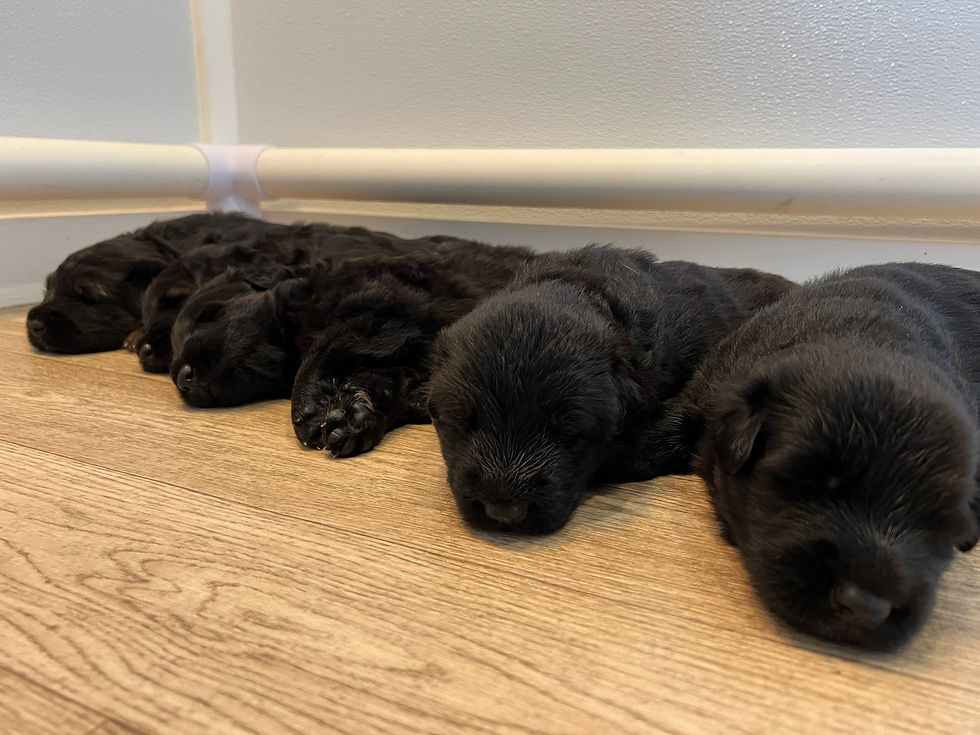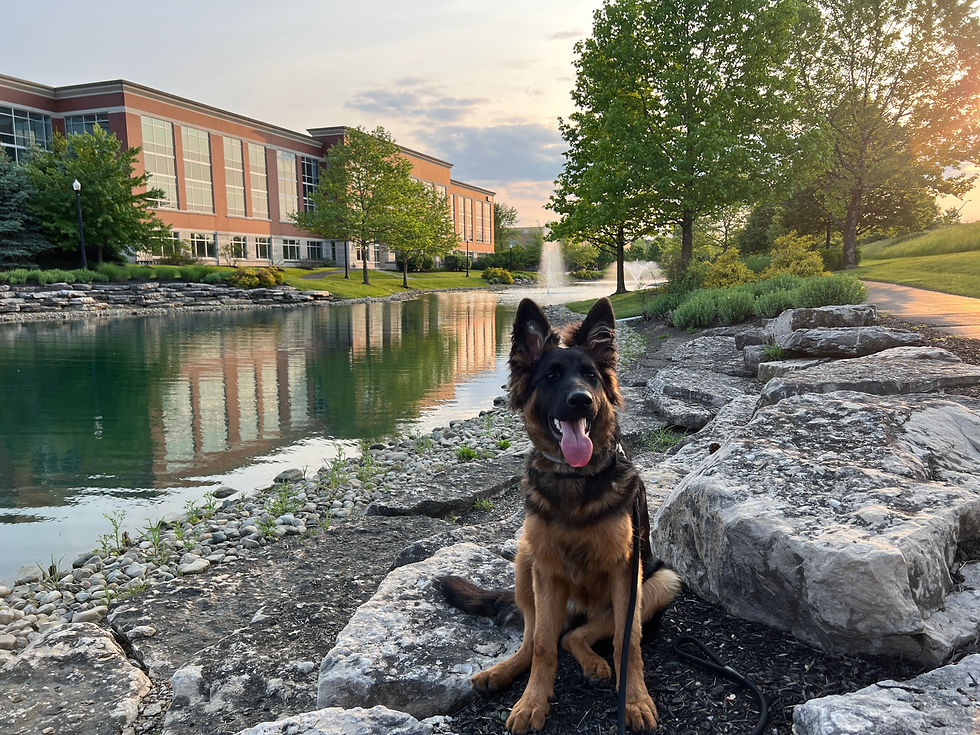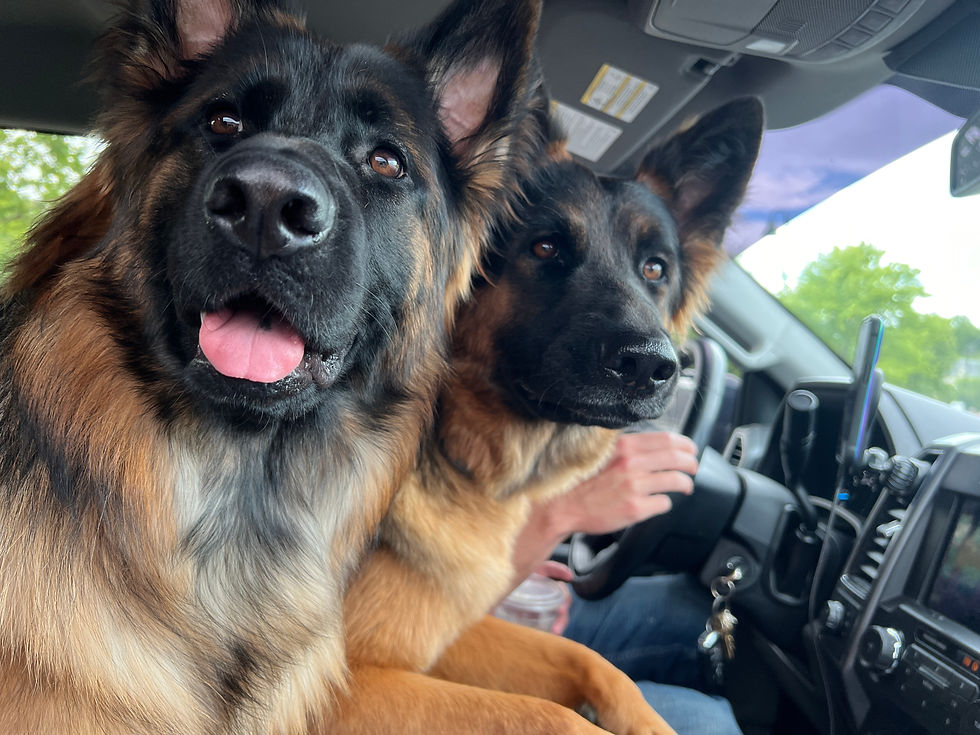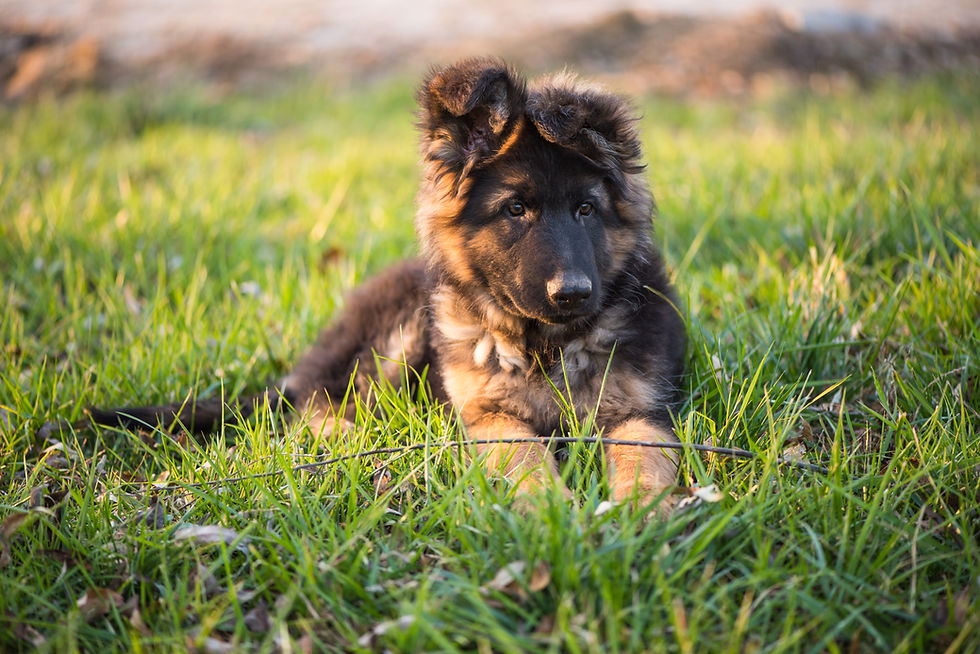Socializing Your German Shepherd Puppy: What to Know From 8 Weeks and Beyond
- Aug 14, 2025
- 3 min read
Updated: Nov 14, 2025

Bringing home a new puppy is one of the most exciting—and important—moments in a dog’s life. For German Shepherds especially, those first few weeks at home help shape who they’ll become as adults. Socialization isn’t just a box to check; it’s a way of raising a confident, well-balanced family dog.
But if you’re a new puppy owner, you might wonder: how do you start socializing your pup safely, especially before they’re fully vaccinated? Let’s walk through it together.

How We Start German Shepherd Puppy Socialization at Pak Shepherds
At Pak Shepherds, we don’t wait until puppies are eight weeks old to start building their confidence. Socialization starts from the very beginning.
By the time your puppy comes home, they’ve already been:
Gently handled by adults and kids in our family
Introduced to our adult dogs (who help teach them respectful dog manners)
Exposed to all sorts of household sounds and smells
Given short, positive crate experiences so it’s not new to them
Started on early potty training outside
We’re hands-on with each puppy, every single day. We believe this gives them the best start possible—and makes the transition to your home a little easier for everyone.

Weeks 8–12: Keep It Low-Key (But Keep Going)
This stage is all about safe exposure. Your puppy’s immune system is still developing, so we recommend avoiding parks, pet stores, and anywhere strange dogs might have been until your vet clears them.
In the meantime, try this:
Invite people over (just remind guests to take it slow—puppies can get overwhelmed)
Expose them to daily life: vacuuming, music, doorbells, etc.
Practice crate time, even during the day
Take short car rides or hang out in the driveway watching the world
With German Shepherd puppy socialization, everything should feel positive and rewarding. If they seem nervous, don’t push—just slow it down and try again later.

Weeks 12–16: Carefully Widen Their World
By now, your puppy has likely had their second round of shots, and it’s time to start introducing them to more of the world—carefully.
This is the age where controlled exposure makes a big impact. Here are a few safe ways to continue socialization while still protecting your pup’s health:
Take short walks in clean, low-traffic areas where you can keep distance from unknown dogs.
Visit drive-thrus or pet-friendly stores, keeping your puppy in your arms or a sanitized cart.
Spend time with trusted, fully vaccinated dogs you know well—this could be friends’ or family members’ dogs who play gently.
Join beginner puppy classes that require proof of vaccinations and use positive reinforcement techniques.
Each of these activities gently expands your pup’s world. They’ll get to see new people, hear new sounds, and explore new places—all while staying safe.
And remember: every outing should be a positive experience. Keep treats handy, speak gently, and don’t overwhelm them with too much at once. At this age, you’re not just exposing them to the world—you’re teaching them how to feel about it.

After 16 Weeks: Keep the Momentum Going
By this stage, most puppies have had their final round of vaccines and can safely explore the world a bit more freely. But socialization doesn’t stop just because puppyhood is fading.
Keep things going by:
Taking them to new places: parks, hardware stores, brewery patios
Meeting different people: kids, seniors, people with hats, etc.
Walking in new neighborhoods
Enrolling in a training class to build focus around distractions
If they’re unsure of something (stairs, new surfaces, busy sidewalks), slow down, give treats, and let them explore at their own pace.
Working with a Trainer
We’re huge fans of working with trainers. A good trainer will not only help you build skills, but also teach your pup how to be calm, confident, and focused around distractions.
Look for someone who:
Uses positive reinforcement
Understands the German Shepherd mindset
Offers group classes or private sessions
A trainer is especially helpful if you’re new to the breed—or just want a little backup as your pup grows into their full personality.

Socializing Through Adulthood
Socialization doesn’t stop after six months or even a year. It’s something you should keep up for your dog’s entire life.
Even adult German Shepherds benefit from:
New adventures
Meeting new dogs and people
Trying new activities, like hiking or scent work
The more your dog sees and experiences, the more adaptable, happy, and grounded they’ll be.

Final Thoughts
Raising a confident, well-socialized German Shepherd isn’t about doing everything perfectly. It’s about showing up for your dog consistently—offering new experiences at their pace, building trust, and staying engaged.
We do our part at Pak Shepherds to start your puppy off on the right paw. From there, it’s your turn to continue the journey. And trust us—it’s a rewarding one.
If you ever have questions about socialization or training after your puppy goes home, don’t hesitate to reach out. We’re always happy to share what’s worked for us.








